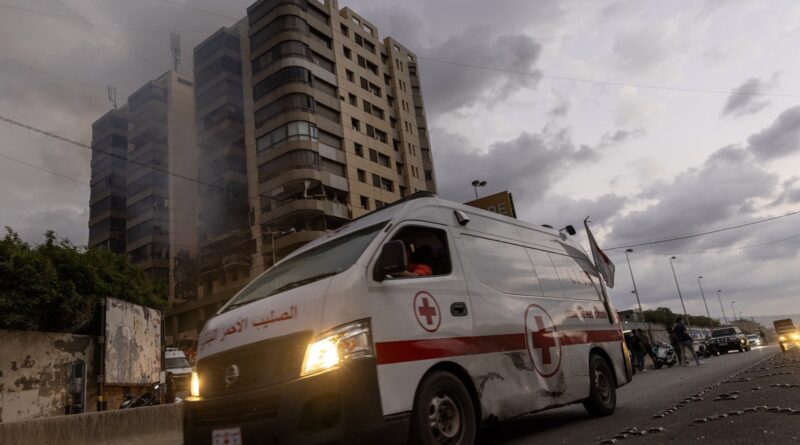Lebanon: a devastating war on health care
As of October 7, 2023, 47% of health care attacks – 65 out of 137 – proved to have killed at least one health worker or patient in Lebanon, as of November 21, 2024.
This is the highest proportion of any conflict active in the world today – almost half of all health attacks resulting in the death of a health worker.
In comparison, the global average is 13.3%, based on SSA figures from 13 countries or regions that reported attacks during the same period, 7 October 2023-18 November 2024 – among them Ukraine, Sudan and occupied Palestinian territory (oPt). In the case of oPt, 9.6% of the total number of events resulted in the death of at least one medical professional or patient.
According to the SSA, 226 health workers and patients were killed in Lebanon and 199 were injured between October 7, 2023 and November 18, 2024.
At the same time, SSA registered a total of 1401 attacks on health in oPt, Lebanon and Israel – 1196 in oPt, 137 in Lebanon and 68 in Israel.
Public health care has special protections
These figures also reveal a very worrying trend. There is no doubt – depriving citizens of access to life-saving care and diverting attention to life-savers is a violation of international humanitarian law. The law prohibits the use of health services for military purposes – and yet, it applies strict conditions to take action against them, including the duty to warn and wait after the warning, “said the Ambassador of WHO Lebanon Dr Abdinasir Abubakar.
International humanitarian law states that health workers and services must be protected at all times from armed conflict and not attacked. Health facilities should not be used for military purposes, and there should be accountability for misuse of health facilities.
“There must be consequences for disobeying international law, and the principles of care, discrimination and equality must always be followed. As mentioned earlier, indiscriminate attacks on health care are a crime of human rights and international law that will not become the new normal, not in Gaza, not in Lebanon, anywhere,” said WHO Regional Director for the Eastern Mediterranean Dr Hanan Balky.
Most of the incidents in Lebanon involve health workers
The majority (68%) of Lebanon’s incidents registered by the SSA involved health workers, a trend seen repeatedly over the past few years, including in Gaza last year. In Lebanon, about 63% affected health transport and 26% affected health facilities.
Attacks on health care strike twice. First, when health workers lose their lives or when a health center is destroyed, and again in the weeks and months that follow when the injured cannot be treated, those who depend on regular care do not get it and when children cannot be vaccinated.
“The number of casualties among the health workers of this region would weaken any country, not only Lebanon. But what the numbers alone cannot convey is the long-term effect, the treatments of the health conditions missed beauty, women and girls denied access to maternal, sexual and reproductive health services, and, ultimately, lives lost due to lack of health care which is difficult to explain,” said Dr. Abubakar.
One in 10 hospitals in Lebanon has been directly affected
The greater the impact on health workers, the longer-term capacity of the country to recover from the crisis and provide health care in post-conflict situations.
Lebanon is a low-income country with an advanced health system that has been hit by several disasters in recent years. After the escalation of hostilities in Lebanon in September 2024, the increasing number of attacks on health has caused additional pressure on an already overburdened system.
Today, the country’s health system is under extreme pressure, with 15 out of 153 hospitals out of business, or under-performing. For example, Nabatieh, one of Lebanon’s 8 districts, lost 40% of its hospital beds.
“Healthcare attacks of this scale disrupt the health system when those whose lives depend on it need it most. In addition to the loss of life, the death of health workers is the loss of years of investment and an important resource for a country that is moving forward,” Dr. Balky concluded.
So far this year, between January 1, 2024 and November 18, 2024, a total of 1246 attacks on health care have been registered worldwide, in 13 countries or regions, which have killed health workers and 730 patients and 1255 injured.
Note to editors
The Surveillance System for Attacks on Health Care (SSA), established in 2017 by the World Health Organization, is an independent global surveillance system whose aim is to collect reliable data on attacks on care of health and identifying methods of violence that help reduce harm. and resilience measures so that health care is safe. The SSA also provides an evidence base for advocacy against health care attacks.
#Lebanon #devastating #war #health #care
